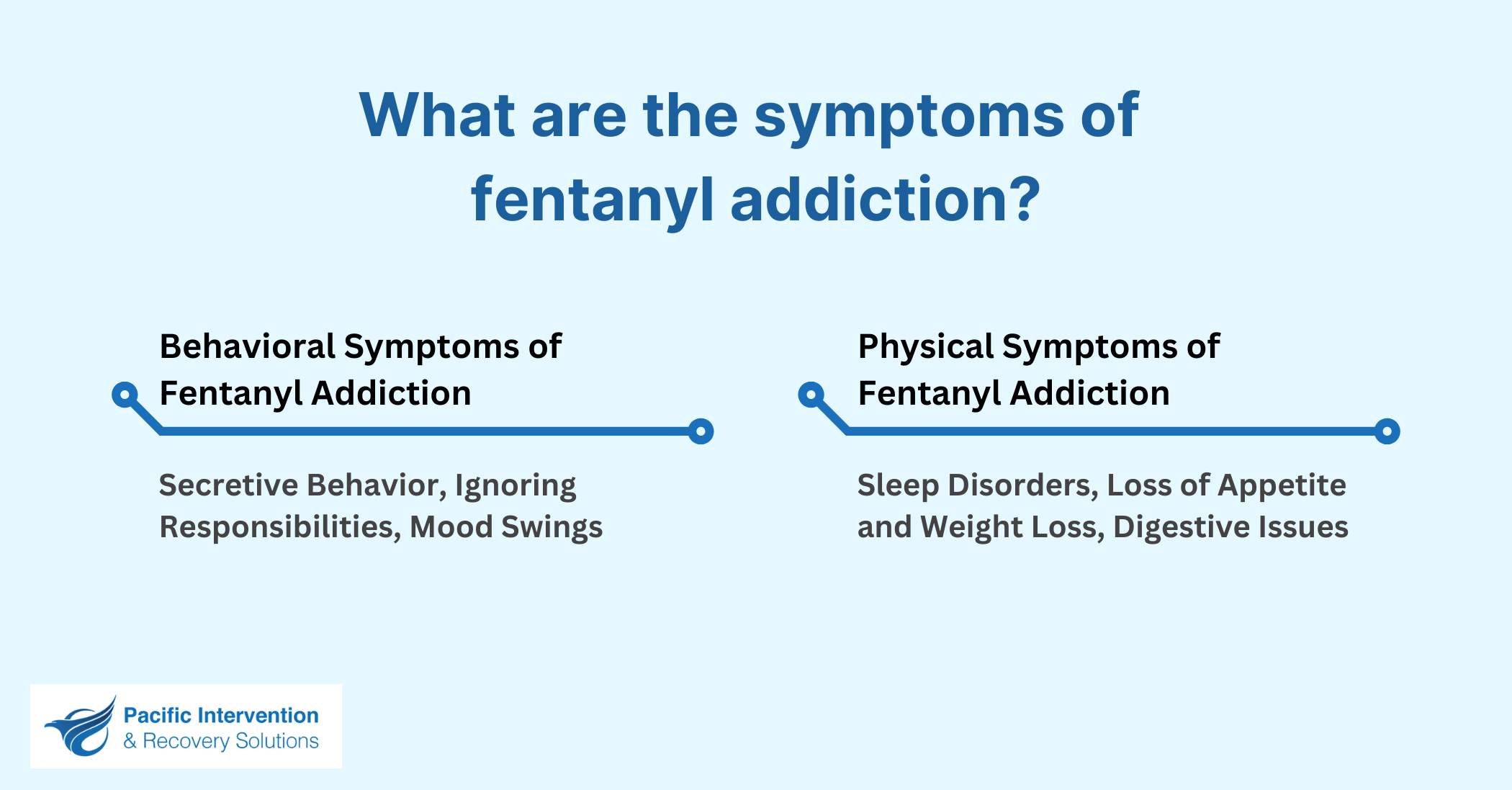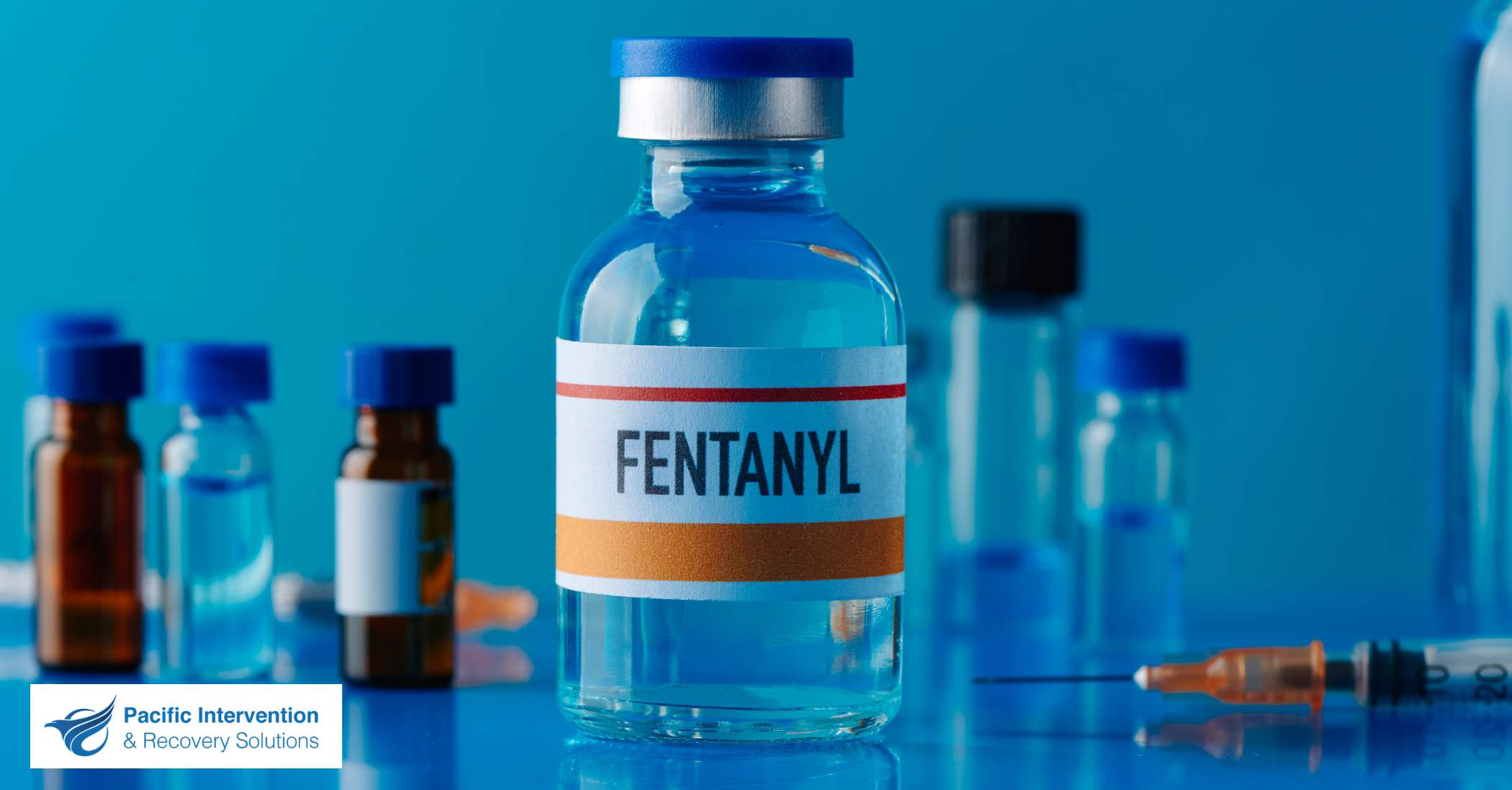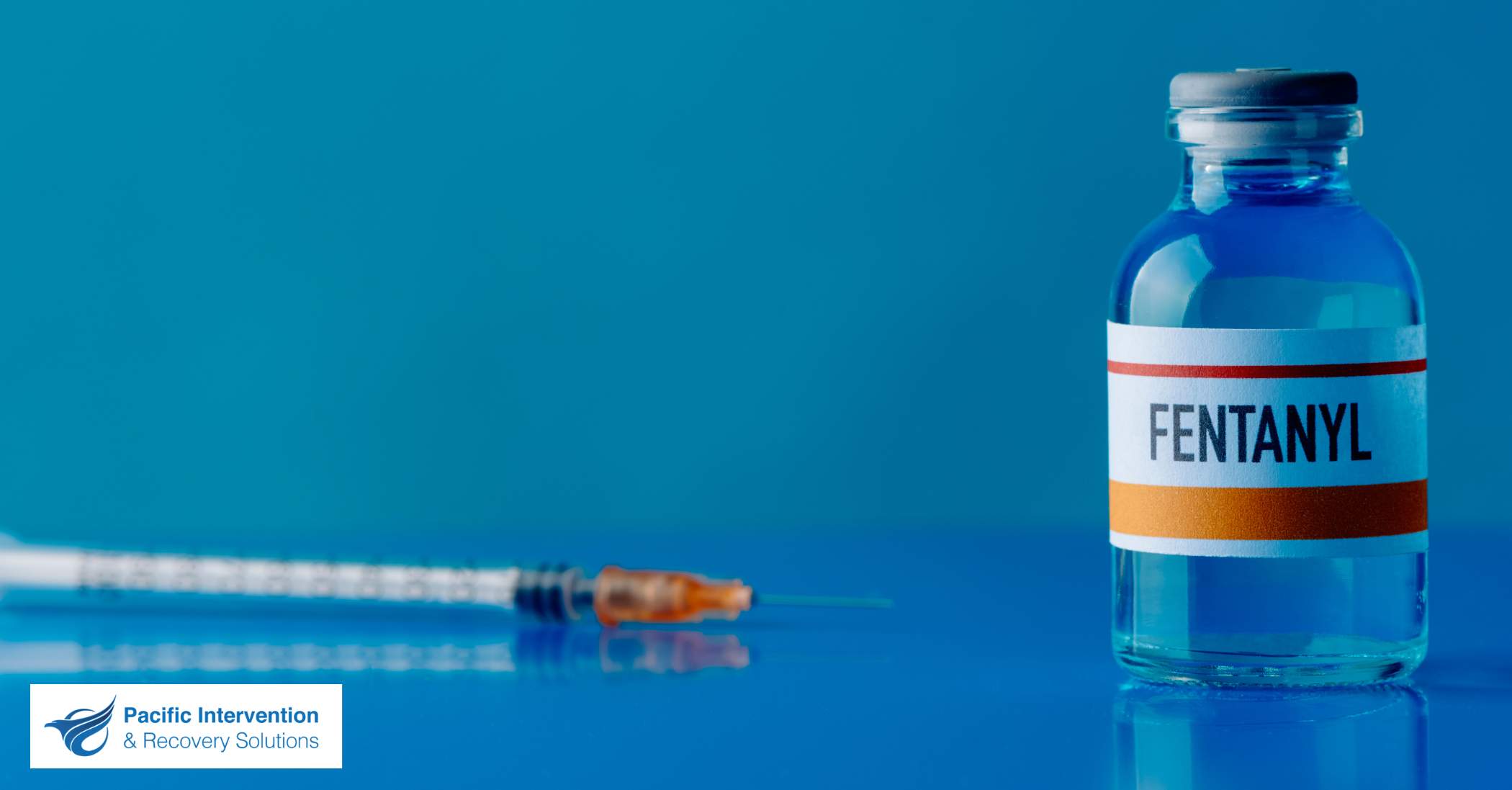Fentanyl, a synthetic opioid, poses significant risks to users’ lives, leading to growing concerns. Although primarily prescribed for severe pain management, fentanyl is highly prone to abuse, often resulting in addiction and, in many cases, overdose. Recognizing the signs of fentanyl addiction is essential for early intervention and treatment.
This guide, provided by Pacific Interventions, will cover the effects, symptoms, and warning signs of fentanyl addiction, along with treatment options and resources for seeking help.
How fentanyl works in the body and its potency
Fentanyl attaches to the brain’s opioid receptors, which control pain relief and feelings of pleasure. When it binds to these receptors, fentanyl blocks pain and creates a powerful sense of euphoria, making it highly appealing.
Due to its potency, even a slight dose increase can lead to overdose. Although effective for severe pain management, fentanyl also carries a high risk of addiction and fatal respiratory depression, where breathing may slow to a dangerously low or lethal level.
What are the symptoms of fentanyl addiction?
Fentanyl addiction presents symptoms that affect behaviour, physical health, and mental well-being. Recognizing these symptoms can help in identifying addiction in oneself or loved ones.

Behavioural Symptoms of fentanyl Addiction
Behavioural symptoms may start mildly but often worsen as addiction progresses:
- Secretive Behaviour: Those struggling with fentanyl addiction may go to great lengths to hide their use, leading to isolation from family and friends.
- Neglecting Responsibilities: Individuals may neglect daily obligations such as work, school, or family duties.
- Mood Swings: Sudden and unpredictable mood changes—from euphoria to anger or sadness—can be a sign of addiction.
Physical Symptoms of fentanyl Addiction
Even at low doses, fentanyl can significantly impact the body. Common physical symptoms include:
- Sleep Disorders: fentanyl addiction often leads to insomnia or excessive sleep.
- Loss of Appetite and Weight Loss: Many individuals experience reduced appetite, leading to noticeable weight loss over time.
- Digestive Issues: Nausea and vomiting are common, particularly during withdrawal from fentanyl.
What are the signs of fentanyl addiction?
The signs of fentanyl addiction extend beyond immediate symptoms, often indicating chronic, long-term dependency. Recognizing these signs is essential for timely intervention.
Social and Psychological Signs of Addiction
Addiction affects all aspects of life, particularly social interactions and mental health:
- Isolation from Friends and Family: Individuals may withdraw socially, avoiding interactions to keep their addiction hidden.
- Obsessive Thinking and Cravings: fentanyl can become a central focus, leading to constant thoughts and intense cravings.
- Increased Anxiety and Paranoia: Going without fentanyl or attempting withdrawal can heighten anxiety and trigger paranoia.
Physical Dependency Signs
Physical dependency on fentanyl is a severe aspect of addiction, marked by:
- Withdrawal Symptoms: Stopping fentanyl use can cause intense symptoms such as muscle aches, sweating, and flu-like effects.
- Tolerance Build-Up: Over time, users may need increasingly higher doses to achieve the same effects, significantly raising the risk of overdose.

What are the effects and risks of fentanyl?
Fentanyl is estimated to be 50 to 100 times more potent than morphine. Due to this strength, even a small amount can reach a toxic level, making it extremely dangerous when used recreationally or without medical oversight.
Short-Term Effects
The immediate effects of fentanyl can be both pleasurable and highly dangerous, often leading to cravings as the effects fade. Users typically experience:
- Relaxation and Pain Relief: Fentanyl provides a wave of relaxation and strong pain relief.
- Respiratory Depression: The drug significantly reduces respiratory function, which can happen rapidly, posing a high risk of overdose if intervention is delayed.
Long-Term Effects
Prolonged fentanyl use can have severe mental and physical health consequences:
- Organ Damage: Fentanyl is metabolized by the liver, and long-term use can lead to liver damage and increased strain on the kidneys.
- Weakened Immune System: Continuous use compromises the immune system, leaving the body more vulnerable to infections.
How to Treat Fentanyl Addiction and What to Expect
With the proper support, recovery from fentanyl addiction is achievable, but it requires commitment and professional guidance.
Detoxification Process
The first step in treating fentanyl addiction is detoxification, where the body clears itself of the drug. Due to the severity of withdrawal symptoms, medical supervision is crucial during this phase. Common withdrawal symptoms include:
- Nausea
- Muscle pain
- Sweating
- Intense cravings
In a supervised setting, medical professionals can provide medications to help manage these symptoms and ensure patient safety.
Therapy Options for Recovery
Therapy is a cornerstone of fentanyl addiction recovery:
- Cognitive Behavioural Therapy (CBT): Helps individuals recognize and alter negative thought patterns that lead to drug use.
- Group Counselling: Provides support in a group setting, allowing individuals to share experiences and learn from others.
- Medication-Assisted Treatment (MAT): Uses medications like methadone or buprenorphine to reduce cravings and manage withdrawal symptoms, aiding focus on recovery.

When to Seek Help for Fentanyl Addiction
Fentanyl addiction can escalate quickly, making early intervention crucial for a successful recovery. Key signs that someone may need help include:
- Increasing dosage to achieve the same effect
- Displaying withdrawal symptoms
- Prioritizing fentanyl over other aspects of life
Seeking help promptly improves the chances of avoiding serious health consequences. If you or a loved one is struggling with fentanyl addiction, consider reaching out for support. An inpatient program can provide the structured care needed to start the path to recovery—beginning with just one call.
In Summary
Fentanyl addiction is a critical public health issue with severe risks for individuals and their families. Recognizing the symptoms and signs of addiction is essential for early intervention and effective recovery, as fentanyl’s powerful effects can lead to serious consequences, including overdose and long-term health complications.
With the proper support and treatment, however, recovery is achievable. Pacific Interventions offers specialized resources to help those struggling with fentanyl addiction. If you or someone you know is affected, reaching out for help can make a difference. A single phone call can start the journey toward a healthier, addiction-free life.



